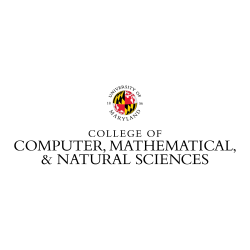Two Biology-UMB Collaborations Awarded MPower BHHP Grants
The Brain Health and Human Performance Initiative (BHHP), part of the University of Maryland Strategic Partnership: MPowering the State, announced the award recipients for its 2021 seed grant program.
The mission of the BHHP seed grant program is to facilitate collaborations between the University of Maryland, College Park (UMCP) and the University of Maryland, Baltimore (UMB) and to promote complementary translational research. In this, the program’s final year, the BHHP’s enlarged focus includes research on nervous system injury, the neurobiology of aging, and neurodegeneration.
By bringing together researchers at UMCP and UMB, the BHHP seed program encourages research in three areas: the multimodal enhancement of human performance; the development of new models, analytics, biomarkers, and brain imaging techniques; and the advancement of “-omics” approaches, which endeavor to connect the different scales at which researchers study the brain—that is, from cell to synapse to circuit to behavioral output.
The five projects funded by the BHHP in 2021 reflect these foci and support three faculty members from Biology.
“Dysregulation of endocannabinoid signaling in the aging olfactory system”
- Ricardo Araneda (Biology, UMCP)
- Joseph Kao (Physiology, UMB)
- Adam Puche (Anatomy and Neurobiology, UMB)
Short-term memory loss—a common sign of aging and neurodegeneration—is also often accompanied by symptoms of olfactory dysfunction. Indeed, those who will experience dementia often lose their sense of smell before the onset of memory loss. Intuitively, this connection makes sense: olfactory perception—the detection, recognition and discrimination of odors—is a process inherently shaped by memories of one’s experiences. The overlap of these phenomena gives rise to Kao, Puche, and Araneda’s hypothesis. The team posits that the process of aging dysregulates top-down cortical feedback control to the olfactory system. That is, the loss of sense of smell occurs because aging affects a group of signaling molecules that modulate synaptic transmission throughout the entire brain. The team’s approach will employ an improved method for studying neuromodulation—namely, new optically-driven stimulation and interrogation paradigms—to open the door for new avenues of precision neurotransmitter modulation research in the neurophysiology community.
“Genomic and Proteomic Analysis of Circuits Mediating Light-Dependent Behaviors in Aging”
- Brian Mathur (Pharmacology, UMB)
- Peter Nemes (Chemistry & Biochemistry, UMCP)
- Alexandros Poulopoulous (Pharmacology, UMB)
- Joshua Singer (Biology, UMCP)
- Colenso Speer (Biology, UMCP)
The regulation of the circadian “clock” by light is of great clinical significance for the study of aging. Circadian dysregulation results in more than lost sleep: it is also a risk factor for metabolic disorders that develop commonly in late adulthood like obesity and Type 2 diabetes as well as a symptom that, for many aged patients, accompanies neuropathologies such as Alzheimer’s disease. However, current research into circadian rhythm and aging relies on methods that fundamentally alter the object of study under consideration. Existing studies isolate and assess the circadian clock by eliminating a gene that creates melanopsin, a photopigment that supplies the means by which the clock receives light. However, this strategy of genetically isolating the clock also prevents the clock from developing normally, and thus it has not yet been possible to study a properly-developed, isolated circadian clock for the purposes of aging research. Singer, Speer, Nemes, Poulopoulous, and Mathur propose to do just that. The team will develop a battery of experimental techniques necessary to manipulate and assess mature, normally-developed circadian circuits. By establishing models for studies of circadian biology that do not rely on developmental knockouts of genes, the project represents a paradigm shift in the field.
###
Media Relations Contact: Nathaniel Underland, underlan@umd.edu







